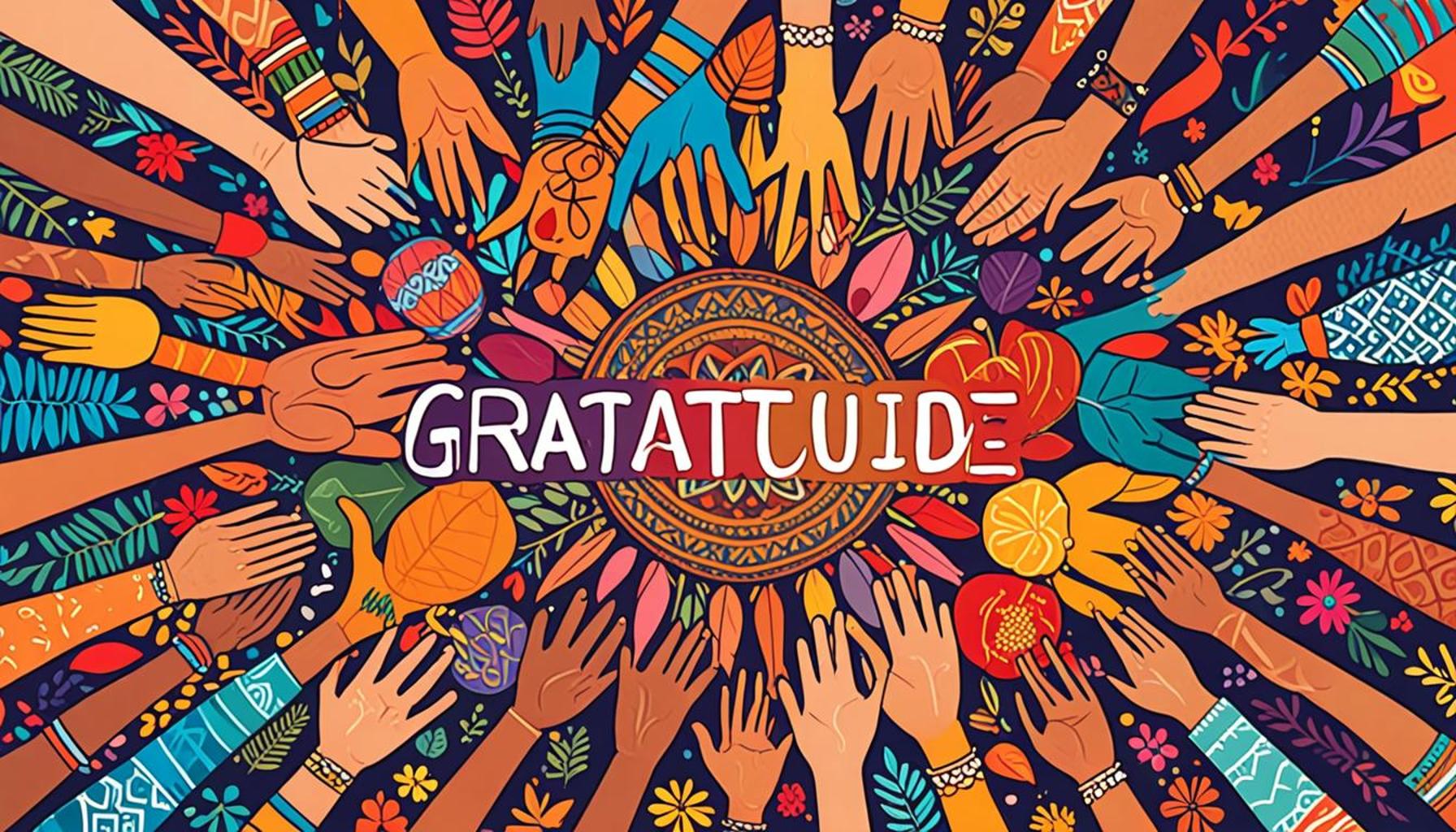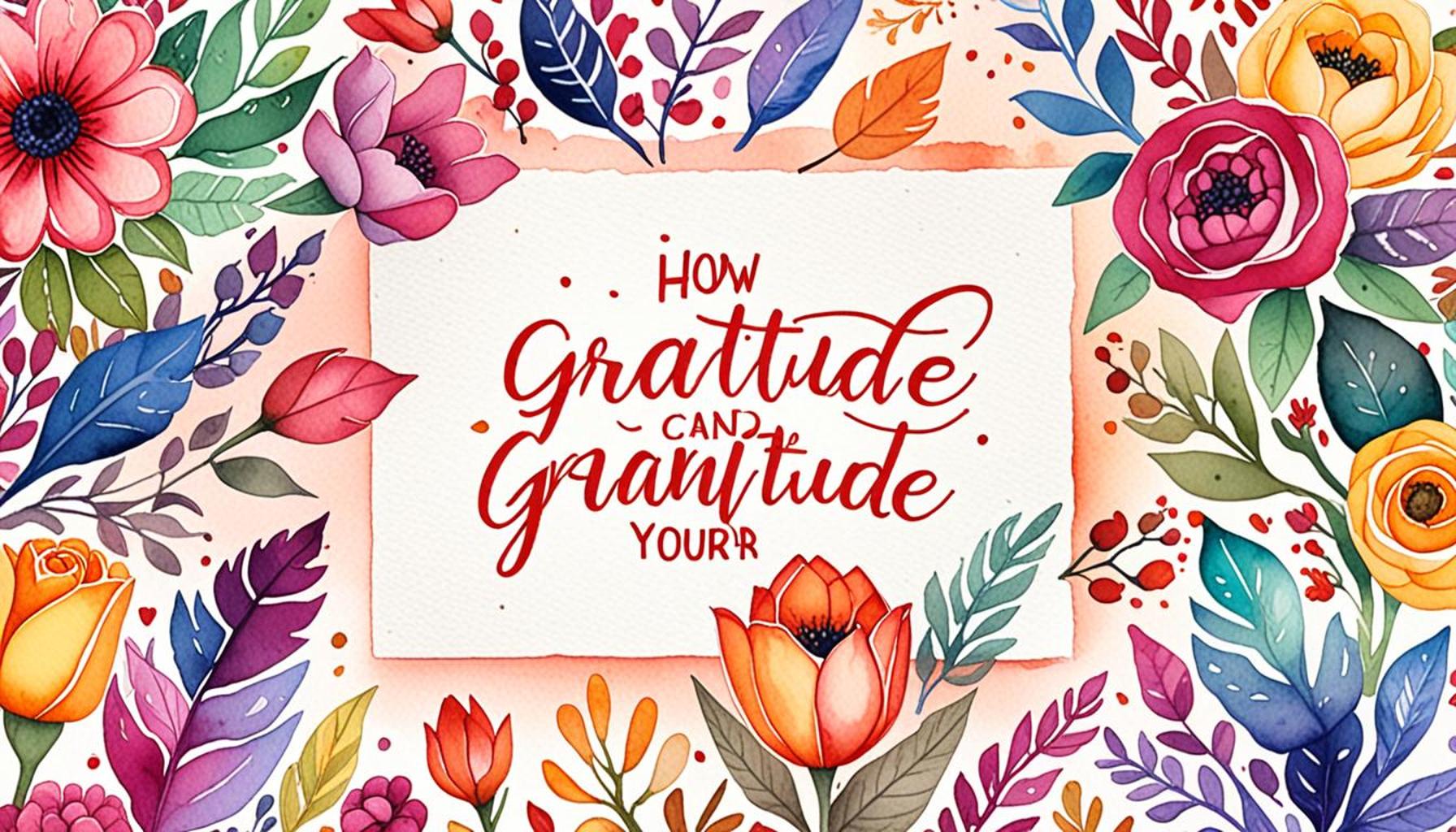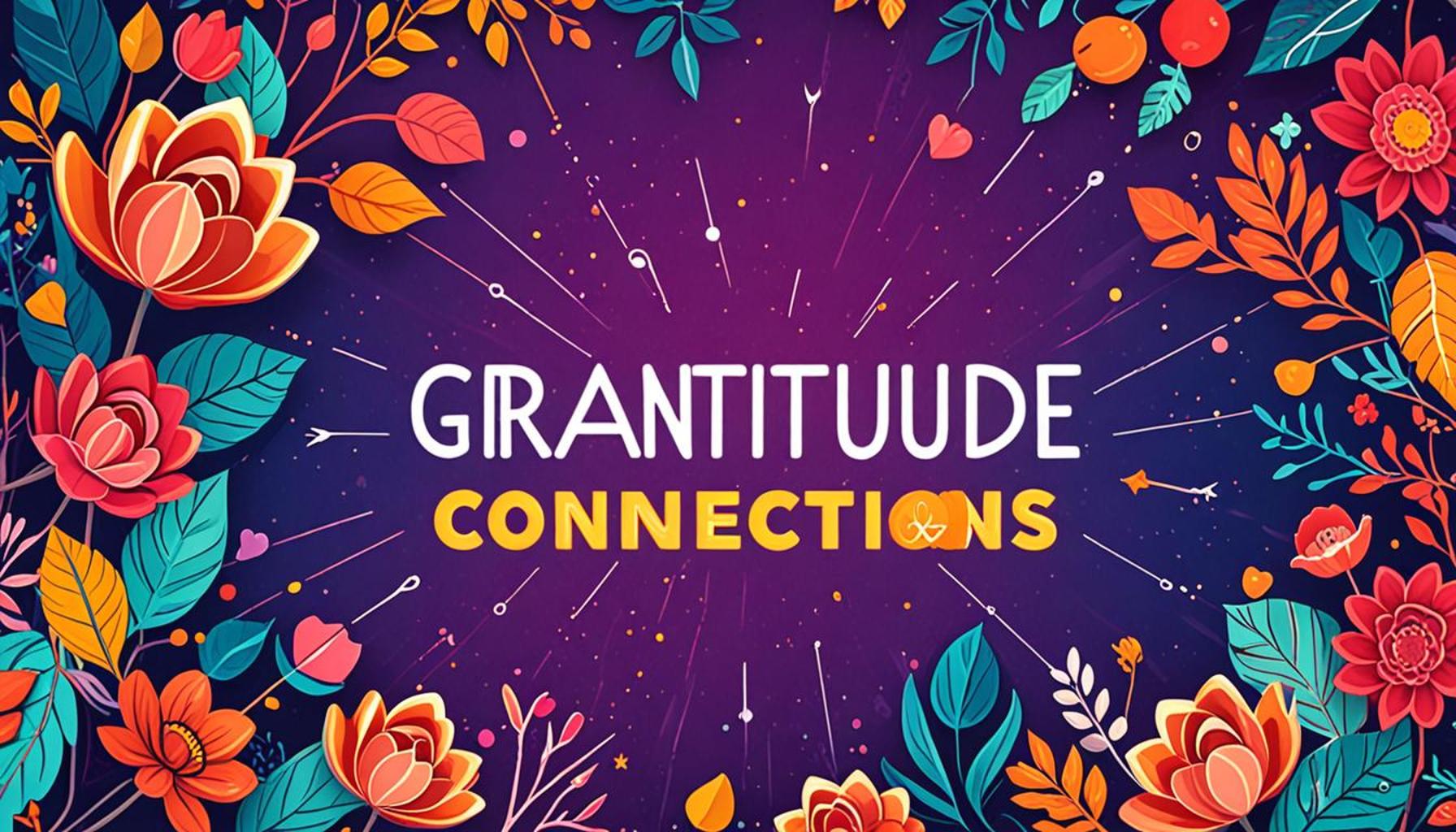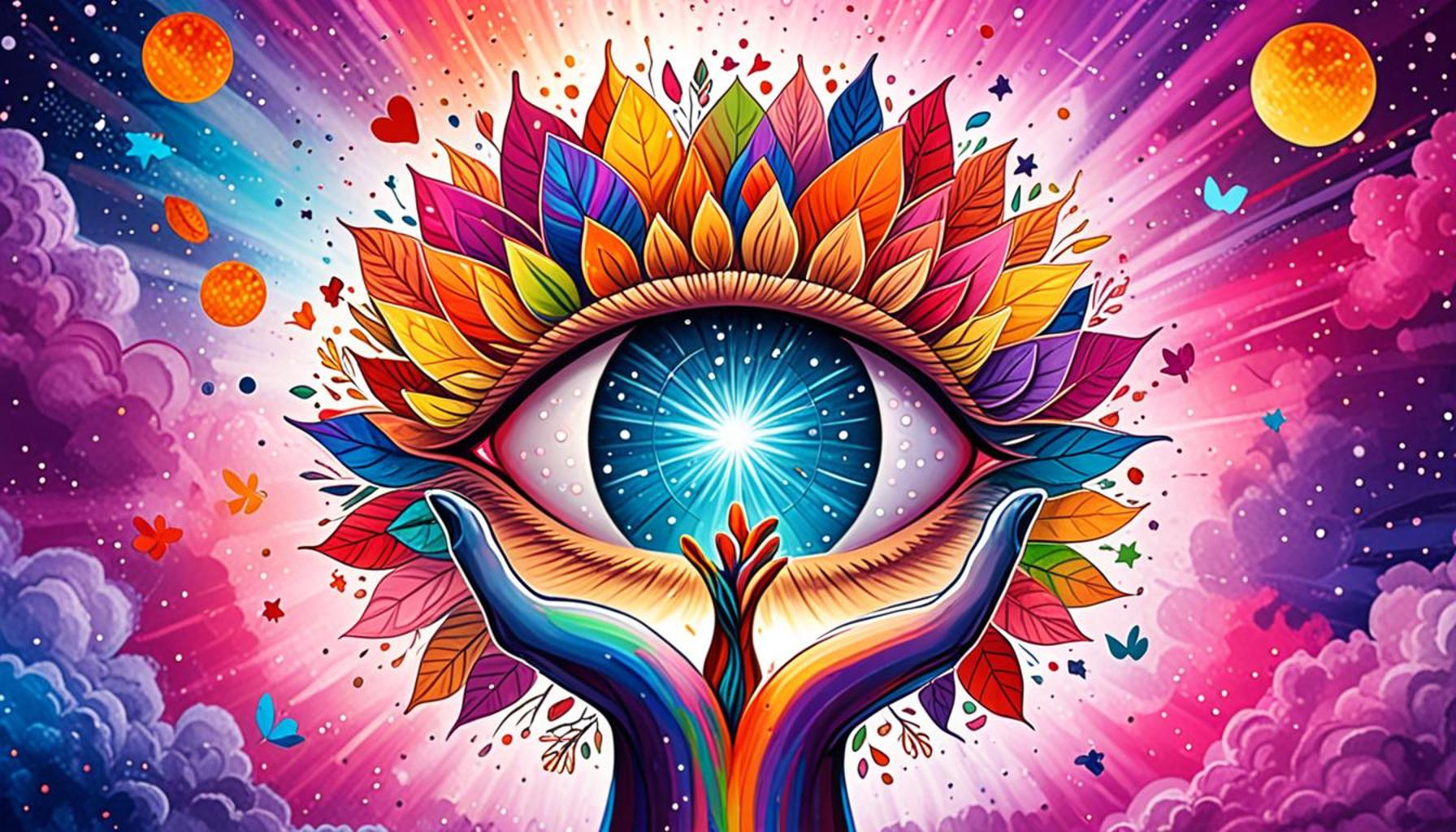Gratitude in Intercultural Relationships: Promoting Harmony in Diverse Communities

The Role of Gratitude in Building Intercultural Relationships
In an era where global interaction is at an all-time high, fostering harmony among diverse communities becomes increasingly important. One of the most effective ways to achieve this is through the practice of gratitude. This sentiment does not merely enrich individual relationships; it serves as a foundational component for understanding and connecting with others across different cultural backgrounds. By embracing gratitude, individuals can bridge divides and cultivate environments characterized by respect and appreciation.
Why Gratitude Matters
The integration of gratitude into intercultural relationships presents a multitude of advantages. Consider the following benefits:
- Enhanced Communication: When gratitude is front and center in conversations, it encourages open dialogue. This not only enables individuals to express their thoughts freely but also builds a trusting atmosphere where deeper discussions can unfold.
- Cultural Appreciation: Acknowledging and celebrating the customs, traditions, and values of others contributes to cultural appreciation. This helps dismantle prevailing stereotypes and fosters a more profound understanding of one another’s ways of life.
- Stronger Bonds: Practicing gratitude nurtures a sense of belonging among individuals and communities. It promotes unity and solidarity, which are essential for harmonious cohabitation in culturally diverse societies.
Examples in Nigeria
Nigeria, with its rich ethnic tapestry, provides a fertile ground for illustrating the impact of gratitude in intercultural interactions. Here are a few poignant examples:
- Festivals: The vibrant local festivals—such as the Eyo Festival in Lagos or the Durbar Festival in Kano—offer excellent opportunities for showing appreciation toward diverse traditions. These events often bring people together, allowing them to express gratitude and celebrate the uniqueness of different ethnic practices.
- Community Support: In various local gatherings, acts of kindness, such as sharing food or helping neighbors in need, not only reflect compassionate living but also strengthen interpersonal ties within communities. Such support encapsulates the spirit of gratitude and reinforces social bonds.
- Exchange Programs: Initiatives like cultural exchange programs in schools enable students to explore varied traditions while fostering mutual respect and understanding. These programs create platforms where gratitude is shared, promoting positive intercultural relations.
In essence, understanding and implementing gratitude in intercultural relationships can significantly enrich personal experiences while contributing to a stronger, more harmonious society. The path toward unity in diverse communities may often begin with a simple yet impactful act: expressing appreciation for one another’s existence and contributions.
YOU MAY ALSO LIKE: Read read another article
The Transformative Power of Gratitude
In our increasingly interconnected world, where cultural diversity is both a challenge and a treasure, gratitude emerges as an essential tool for nurturing meaningful relationships. Particularly in complex societies like Nigeria, with its rich mosaic of over 250 ethnic groups, the expression of gratitude is more than mere politeness; it catalyzes understanding and enhances connection among individuals hailing from varied backgrounds. The isolation or frustration that can accompany cultural differences often melts away through simple acts of appreciation and acknowledgment.
For instance, the simple yet profound utterance of “thank you” can create an atmosphere charged with positivity. In Nigeria, where languages and traditions abound, expressing gratitude validates the experiences and efforts of others, allowing for a more harmonious coexistence. This validation is crucial, as it not only recognizes the uniqueness of various cultural assets but also fosters a sense of belonging that transcends superficial tolerance, evolving into a deep-seated appreciation of one another’s contributions.
Gratitude as a Bridge to Understanding
Gratitude serves as a bridge, helping to ease the bumps along roads paved with cultural differences. When individuals approach interactions with an attitude of thankfulness, it tends to encourage active listening and empathy. Studies have indicated that individuals who regularly practice gratitude are better equipped to understand and appreciate the feelings and experiences of others. This mindset brings about two significant outcomes:
- Conflict Reduction: Appreciating the value in diverse perspectives can minimize tensions in intercultural exchanges. Instead of viewing differences as a cause for discord, individuals may come to see them as opportunities for personal and communal growth.
- Increased Cooperation: A grateful mindset enhances teamwork. When engaged in community initiatives—be it grassroots education projects or health campaigns—expressing gratitude can motivate individuals to contribute wholeheartedly while respecting the diverse backgrounds that enrich their collaborative efforts.
In Nigeria, numerous community initiatives epitomize the powerful influence of gratitude in fostering intercultural harmony. For instance, community service projects often encourage participants from various ethnicities to collaborate on common goals, where gestures of kindness—such as volunteering for local schools or participating in health drives—reinforce the essence of mutual support. Through joint endeavors, individuals express not only thanks for completed projects but also gratitude for the rich tapestry of cultural identities that each participant brings to the table.
Moreover, local festivals, such as the annual Osun-Osogbo festival, serve as unique venues for inter-ethnic engagement, where gratitude is expressed through traditional dances, music, and shared meals that celebrate diversity. Such interactions allow individuals to appreciate the stories and histories of their neighbors while forming connections that transcend ethnic divides.
To conclude, integrating gratitude into the fabric of intercultural relationships is pivotal for promoting understanding and acceptance. By recognizing and valuing the inherent diversity within communities, people can forge stronger bonds, leading to harmonious coexistence in culturally rich environments like Nigeria. In nurturing these relationships through appreciation, every individual contributes to a legacy of unity that will benefit future generations.
| Category | Description |
|---|---|
| Increased Understanding | Gratitude enhances appreciation for diverse perspectives, fostering mutual respect and enriching dialogues. |
| Connection and Trust | Intercultural gratitude builds stronger bonds by creating an emotional safe space, encouraging open communication, and cooperation. |
| Conflict Resolution | Incorporating gratitude in discussions allows communities to navigate differences effectively, minimizing misunderstandings and fostering harmony. |
| Cultural Exchange | Recognizing and expressing gratitude facilitates the sharing of cultural traditions, enriching community life and promoting inclusivity. |
Gratitude in intercultural relationships serves as a catalyst for enhancing societal cohesion. It is essential not only for personal development but also for collective growth within diverse communities. By embracing various cultural expressions of gratitude, individuals can unlock a deeper understanding of different values and beliefs, which in turn nurtures a more harmonious environment.Moreover, when gratitude permeates interactions in diverse settings, it encourages communities to rally around shared objectives, fostering teamwork and collaborative spirit. This intricate weave of appreciation holds the potential to bridge gaps and promote harmony, thereby reinforcing the fabric of intercultural relationships. As societies become more globalized, the significance of gratitude as a tool for fostering inclusiveness and unity becomes increasingly imperative. Each positive interjection of gratitude can pave the way for a more equitable and understanding world.
YOU MAY ALSO LIKE: Read read another article
The Role of Gratitude in Building Resilient Communities
Gratitude does not merely exist in isolated moments of appreciation; it can be a transforming force for entire communities. In diverse settings such as Nigeria, where social cohesion is essential for peaceful coexistence, cultivating an environment of gratitude can significantly enhance community resilience. Resilience in this context refers to the ability of a community to withstand and recover from challenges by leveraging its diverse social networks and resources. Here, the practice of gratitude offers a foundation for strengthening these connections.
Social cohesion thrives on trust and mutual respect. When gratitude is part of everyday exchanges, it builds trust among individuals from different cultural backgrounds. For instance, consider a collaborative neighborhood clean-up project involving Yoruba, Igbo, and Hausa community members. Expressions of gratitude for the contributions and efforts of all participants reinforce the notion of collective responsibility, fostering a united front against local challenges, such as waste management.
Moreover, gratitude can facilitate intergenerational dialogues that channel community knowledge effectively. Older generations possess invaluable wisdom and experiences shaped by their cultural backgrounds, while younger generations offer fresh perspectives and innovations. Acknowledging these contributions fosters mutual respect and appreciation, encouraging active participation across age groups. Community forums that promote stories of gratitude—like the storytelling nights organized in various localities—allow participants to share experiences that celebrate their diverse heritages, reinforcing understanding and empathy.
Gratitude: A Catalyst for Tolerance and Empathy
In a culturally diverse society, tolerance is essential but can often be misconstrued as mere acceptance of differences. Gratitude helps to elevate tolerance towards a deeper form of engagement—empathy. When individuals share feelings of thankfulness, they become more willing to listen to and understand one another’s fears, aspirations, and lived experiences. This kind of emotional engagement can transform intercultural relationships.
For example, during moments of cultural festivities like the Eid-el-Kabir celebrated by Muslim communities or the New Yam Festival cherished by the Igbo, expressions of gratitude for joy, unity, and cultural practices can engender deeper intercultural interactions. Participants from different ethnolinguistic backgrounds can connect through shared celebrations, promoting a sense of solidarity that transcends everyday differences.
- Empathy in Conflict Resolution: In situations filled with misunderstandings or cultural faux pas, gratitude creates a pathway to healing. When individuals acknowledge each other’s efforts to resolve conflicts, they demonstrate a willingness to promote harmony rather than animosity. This shift is vital for reducing cultural misunderstandings.
- Community Empowerment: Initiatives that consistently promote gratitude can empower marginalized voices within diverse communities. Recognizing and valuing the contributions of all ethnic groups fosters a sense of belonging, encouraging these groups to engage actively in community development efforts.
As communities in Nigeria navigate the complexities of a multifaceted society, integrating gratitude into everyday interactions can enhance cohesion, empathy, and resilience. The willingness to acknowledge and appreciate each other’s efforts is not only beneficial for individual relationships but can also drive social change, making gratitude a vital ingredient in promoting harmony within diverse communities.
YOU MAY ALSO LIKE: Read read another article
Conclusion: The Transformative Power of Gratitude in Diverse Communities
In the rich tapestry of Nigeria’s multicultural society, the practice of gratitude emerges as a powerful tool for fostering unity and understanding. By encouraging appreciation among diverse cultural groups, we can pave the way for stronger relationships that transcend ethnic boundaries. Each expression of gratitude, whether expressed through simple acts or formal acknowledgments, serves to nurture a spirit of harmony, striving to overcome historical divides and build collective resilience.
Through initiatives that promote thankfulness, communities can strengthen trust and social bonds, vital components for peaceful coexistence in an increasingly complex world. The dialogue initiated by expressions of gratitude not only fosters greater empathy but also enhances tolerance, allowing individuals to appreciate the stories and experiences that shape their neighbors’ lives. As we partake in cultural celebrations, such as local festivals or community gatherings, the shared joy magnified by heartfelt gratitude deepens our interconnectedness.
Furthermore, the acknowledgment of contributions from marginalized voices fosters empowerment, reinforcing the idea that everyone matters in the community’s narrative. By embracing gratitude as a cornerstone of our interactions, we can dismantle barriers, create a more inclusive atmosphere, and cultivate an enduring legacy of camaraderie among all Nigerians, irrespective of their backgrounds. In essence, embedding gratitude into our daily lives could well be the key to unlocking a future where intercultural relationships flourish, leading to social harmony and cohesion.


